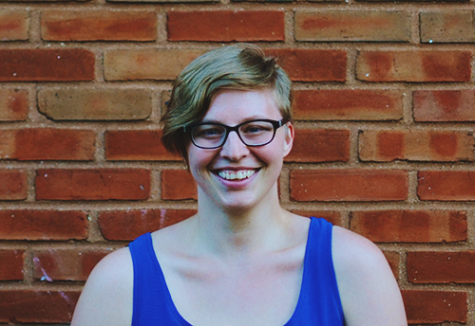Check your privilege
October 3, 2014
I’ve always considered myself to be an incredibly lucky person. My family is completely supportive and non-judgemental, I stumbled into a career field that is actually interesting to me and I somehow acquired valuable skills while making the choices that seemed easiest at the time. I have it pretty good. At some point, though, I came to believe that I live a normal life. That the “average person” could have similar experiences and opportunities. But through my experiences here at Case Western Reserve University, especially those of the past few weeks, I have realized that this is not the case. I have been privileged my entire life by factors I have learned carefully to ignore.
By virtue of my race, nationality, age and plenty of other factors, I am given unearned benefits every day. We all are. It’s easy to believe that the notion of privilege is something that only applies to those who are wealthy or influential. But, if you think about it, there are circumstances and environments where we all have come to expect special treatment that is anything but a normal occurrence.
If you think that getting pulled over is just an inconvenience, you are in a class separate from those who have reasons to fear interactions with authority. If you grew up thinking about what your major or career would be, you are advantaged over the many children and young adults in our society who are not given any opportunities to change their given path. If you can reasonably expect most of the people you interact with every day to treat you with respect or, at best apathy, you are in a better position than the multitudes of others who have come to expect the worst.
My own personal privilege has come into an uncomfortably sharp focus as this week as I had the opportunity to attend the #webelonghere forum sponsored by the CWRU African American Society on Saturday. There are people on this campus who are treated with distrust and disrespect daily. They have to wear backpacks to show they’re students and not thieves. They are urged to tell strangers “what” they are. They are made to feel like they’ve been transported to a foreign environment, despite the fact that many grew up minutes away from our campus.
At the beginning of the semester, I was so excited when I realized that most of my classes would be taught by women. I’ve always enjoyed seeing women in positions of power and it helps to know that I’m a part of community that supports the advancement of people, regardless of gender. However, what does it mean that I haven’t had any African American professors in my time at CWRU? What does this say about our ability to show all of our students what they can personally aspire to? We have an incredibly diverse faculty in terms of gender, nationality and experience. But are there really so few opportunities for persons of color in academic positions?
CWRU is a campus right in the middle of an urban environment with trains and express buses running day and night. So what does it mean that many members of our student body are worried to leave campus because it seems dangerous to ride the train or walk around downtown? What does this say about our university, which claims community involvement?
I’d used to think that these are just events or trends taken out of context. But I’ve learned that I can’t take anything for granted anymore. I can’t ask others to not take it personally when they aren’t being represented in positions of power on this campus and I can no longer say that it’s something the majority doesn’t experience, so it must be atypical. We have to confront our privileges head-on. Without seeing these unearned advantages for what they are, we can’t acknowledge that there are others who aren’t so lucky, but who are equally deserving of the opportunities, availability of representation and respect that we receive every day.
To start this process, I’ve listed a few of the unearned privileges I’ve received these past few days. This doesn’t cover everything, but it’s a start. I urge you all to take some time to think about your own, and think about those who are hurt by this inequality. We all must work harder to make CWRU the campus community that we can all proudly belong to.
1. When I smile at strangers in greeting, they usually acknowledge me.
2. People aren’t surprised when I speak in my normal voice.
3. I don’t have to feign gratitude at being an exception to the normal stereotypes of my race or nationality.
4. I can watch TV and not think about the representation of race.
5. People don’t cross the street when they see me.
6. I can expect to see lots of people who look similar to me in positions of power anywhere I go.
7. I don’t have to wonder if my name makes me seem unprofessional.
8. I don’t have to consider that those I need to deal with have unfounded prejudices towards me.
9. I haven’t had to show my ID at night when I’m walking around campus.
10. I feel like my community acknowledges my individual identity and accepts me as a member.


